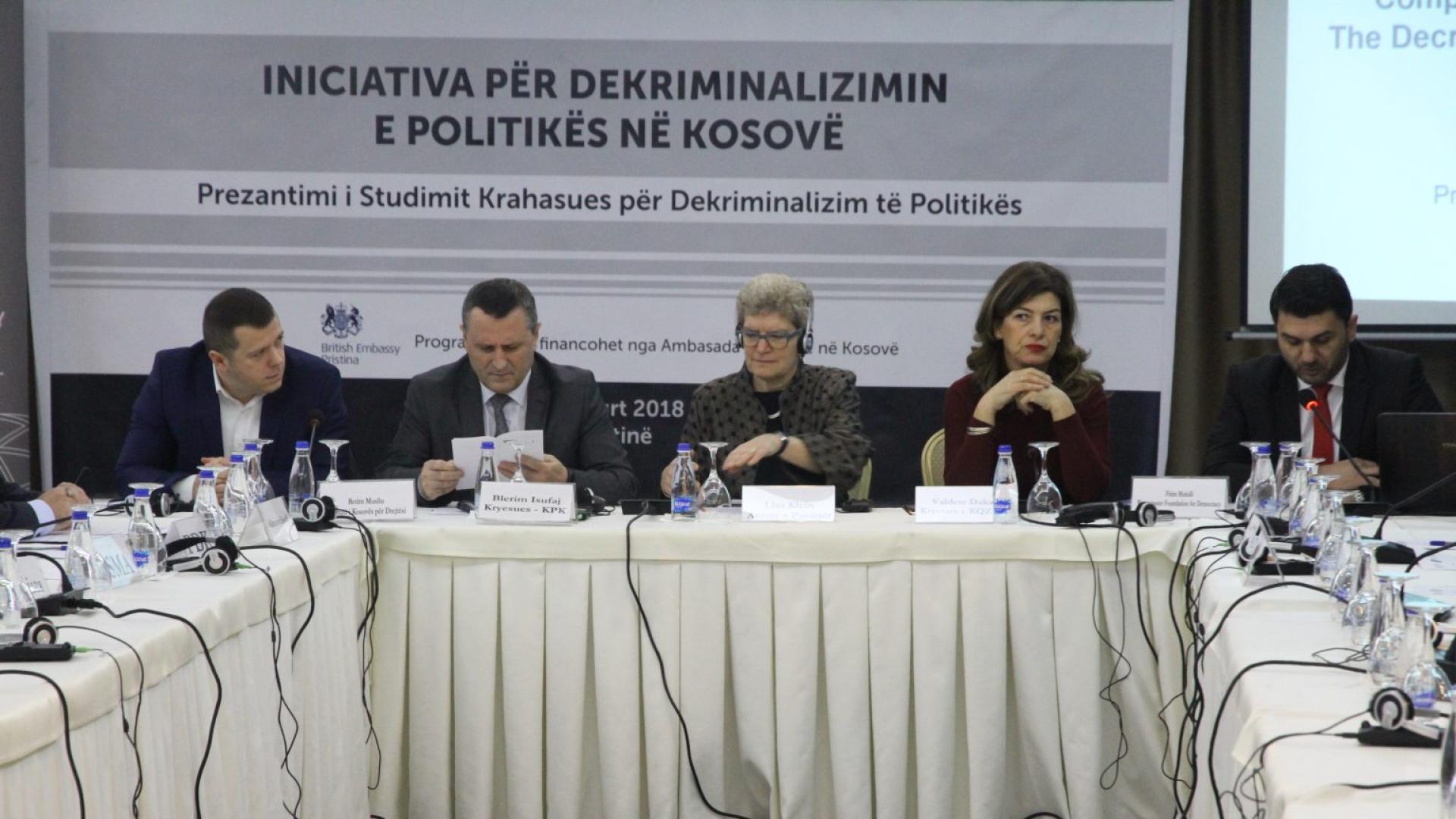Supporting political party reform in Kosovo

Political parties’ image in Kosovo have been tainted. Citizens’ hold a deep level of mistrust in the institutions that should represent their interests, because constructive dialogue between political parties, citizens and civil society is not happening. By not tackling public perceptions about transparency and clientelist operations within parties, internal reforms are struggling. Westminster Foundation for Democracy’s new programme is set to address these inherent challenges with the party system in Kosovo.
Corruption and political parties in Kosovo
Political parties are the most corrupt institutions in Kosovo, a special edition of the Public Pulse on Corruption from UNDP Kosovo revealed. The report found that the increase in dissatisfaction with political parties reflects the political turmoil witnessed since summer 2015, which is related to the decrease in satisfaction with the general political direction in Kosovo. Citizens believe that corruption is more prevalent in political parties because of the perception that political parties in Kosovo are not driven by clear ideology, are not democratic, and are detached from the public.
Corruption and monopolies were proclaimed to be the main forms of political patronage and clientelism in a recent study by a local think tank too. Mutually dependent relationships between economic and political arenas were designated as the way to accumulate and maintain political power and economic wealth it argued. The study attributes this characteristic to the concentration of political power to a relatively small group of people, the lack of effective rule of law and mechanisms of accountability. The quest for stability before development has created a perception among some international actors that clientelist networks are tolerated in Kosovo. Another contributing factor to informality and political patronage is the relatively large portion of the population in Kosovo living below the poverty threshold, which drives membership to political parties. People are often encouraged by self-interested reasons like employment in public institutions, or benefits from contracts offered through public funds to get active in political parties.
By supporting political system change in Kosovo, WFD will tackle these key challenges. Parties can open their structures to new members and address the needs of vulnerable groups such as women, persons with disabilities and the unemployed, as well as implementing merit-based promotions in their own ranks. Additionally, parties can ensure that their policy positions are a result of inclusive and transparent deliberation process and not from back-door discussions between small groups of people.
A multi-party approach
WFD’s approach brings together elements of multi-party work with support to individual political parties. We seek to address issues which exist within the legal and legislative framework in which the political system operates whilst engaging a wider representation of society. Our support to multi-party democracy in Kosovo contributes more broadly to the promotion of good governance across the Western Balkans.
As part of the multiparty support WFD will provide assistance to targeted parties. By tackling a broad range of issues which are common to political parties and the political system in Kosovo, the support hopes to unite parties on key issues including party finance, internal party governance, supporting Women in political parties, EU accession promoting a code of ethics and the decriminalisation of politics and communications.
Support for individual parties
When it comes to supporting individual parties, WFD will work to identify gaps in capacity and provide individual support based on demand to drive the needed reforms. This tailored approach will encourage the political parties to design interventions that help them move towards pre-established standards, while ensuring local ownership and buy-in.
From exposure to international best practice through engagement of local, regional or international experts on particular themes to the engagement of sister-parties, regional and international party networks for particular projects WFD will encourage suggestions from the parties themselves on areas they identify for reform. This could include self-implemented training and engagements of party membership and structures; retreats and strategy development by party bodies; as well as equipping party offices and other operational units and strategy implementation.
To facilitate sharing of knowledge the programme will produce research papers on key issues, provide comparative examples and technical assistance in drafting legislative amendments to political party frameworks through engagement with parties, parliament, and relevant government institutions.
By engaging key stakeholders from civil society, academia, international experts and the Kosovo political parties, WFD will review and highlight issues of the legal and regulatory framework that are relevant as these “rules of the game” define the overall political system, addressing gaps will ensure that parties are further encouraged towards European standard.